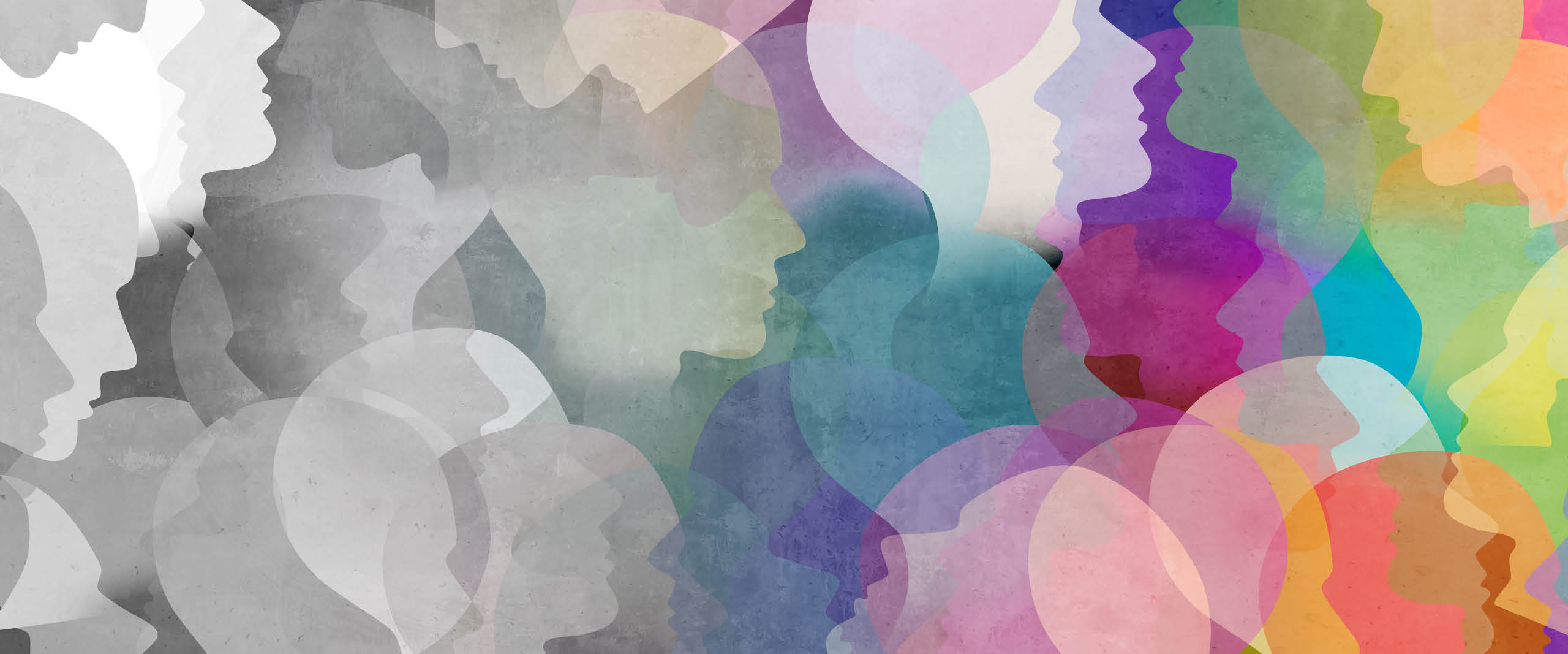Sociology
Explore. See. Understand.
Welcome to the Sociology Department! Sociology helps us look beyond the surface, look at issues from multiple perspectives, and look through the sociological lens. Sociology is the scientific study of social relations; it is the field that opens the doors of society so you can see what goes on behind them. It analyzes and explains human interaction in our personal lives, our communities, and in the world. The field of Sociology takes an in depth look into how different factors influence our thinking, our actions, our behavior, and our general life outcomes. This is called the “sociological imagination.” The idea is to tie the private troubles with public issues and this can be done in many ways that this discipline offers.
Sociology will help you connect your individual experiences to societal factors. Sociology helps us explore and understand how life events and other factors such as working full time and juggling responsibilities, a break up or a divorce, sudden loss of job, anxiety and depression, or taking care of a family member impacts how an individual fares in life. It further helps us explore societal issues such as incidence of crime, drug use, loss of employment, and whether such incidences are attributable to individual failings or a combination of various social factors that lead to such outcomes.
To explain people’s behavior, we need to emphasize the social context in which they operate:
- Income level
- Level of education
- Gender
- Age
- Sexual Orientation
At the personal level, sociology investigates the social causes and consequences of racial and gender identity, group behavior, culture and socialization, marriage, and family life, to name a few.
At the societal level, sociology examines and explains matters such as crime, law and deviance, poverty and wealth, prejudice and discrimination, education, and religion.
At the global level, sociology studies such phenomena as power and conflict, population growth and migration, war and peace, economic development, and social change.
Sociology encourages you to enhance your comprehension and reasoning as you see the interplay between people and society, biography and history, and the individual self and the world. The field allows you to contextualize and pursue structural issues and the socio-economic and historical processes that shape relationships. Sociology helps explain key social issues such as inequality, oppression, and racism, the processes that lead to them, and what ameliorative or mitigating steps may be taken to address them.
What Can I Do With a Degree in Sociology?
You will be seeking employment in an ever changing, increasingly global, and technology driven workplace. A successful candidate in this environment needs a core set of skills and abilities that can be applied in a wide range of job settings. A sociology major equips you with the skills and knowledge sets that are sought after by employers. You will be trained to think critically, analyze, and solve problems, work in teams that foster cooperation, communication, and creativity. You will work with diverse communities to foster a sense of multiculturalism and inclusivity.
Teaching and Learning Policy
The mission of the department of sociology is as follows: The faculty of the department of sociology offers a broad range of high quality, interactive courses that provide sociological perspectives for students and others, leading to an understanding of our own as well as other societies and cultures. The faculty is committed to excellence in the integration of teaching, research, and service that connects local, national, and global communities.
In order to fulfill this mission, we create learning environments which ensure the highest quality of learning and often engage students in research projects in the local community. Students in sociology courses are challenged in many ways. Research and writing requirements are heavier than those in most other departments. Mainstream assumptions about race/ethnicity, social class, nationality, religion, and gender are frequently challenged in ways that have an emotional impact upon students.
In order to have successful and open discussion of these challenging issues it is necessary to have a safe teaching and learning environment.
We provide an atmosphere of mutual respect among students and between faculty and students to allow for honest discussion, questioning, and analysis. The department frequently meets to discuss ways to ensure and promote the level of mutual respect which will lead to the highest levels of learning. We have ongoing discussions about improving teaching methods, and the department works as a team to promote the continual improvement of the learning experiences of our students.
In accordance with national standards, we support the academic freedom of our faculty to incorporate new and innovative hands-on learning experiences into their classes, and we encourage experimentation with new methods.
COMPETENCIES
Conceptual Competencies
- Apply sociological concepts, theories, and perspectives on culture and society
- Demonstrate an understanding of cultures and societies in their own terms
- Appraise the impact of the social and physical environment on individual experience
- Assess and critique different sociological theoretical orientations
- Explain the process of theory construction
Methodological Competencies
- Demonstrate the connection between theory, methods, and realities
- Frame and execute a research project
- Record, interpret, and communicate quantitative and qualitative evidence
- Find, organize, and critically evaluate data/information (interpreting data outcomes and evaluating literature)
- Apply the use of technology for achieving goals and tasks
Civic Competencies
- Promote the active exchange of ideas in a civil manner
- Employ sociological knowledge to address important issues locally and globally
- Gain competence in effective collaboration and teamwork
- Identify and confront ethnocentrism
CERTIFICATES
Along with our major, minor, and online degree completion programs we offer seven unique and exciting certificates.
